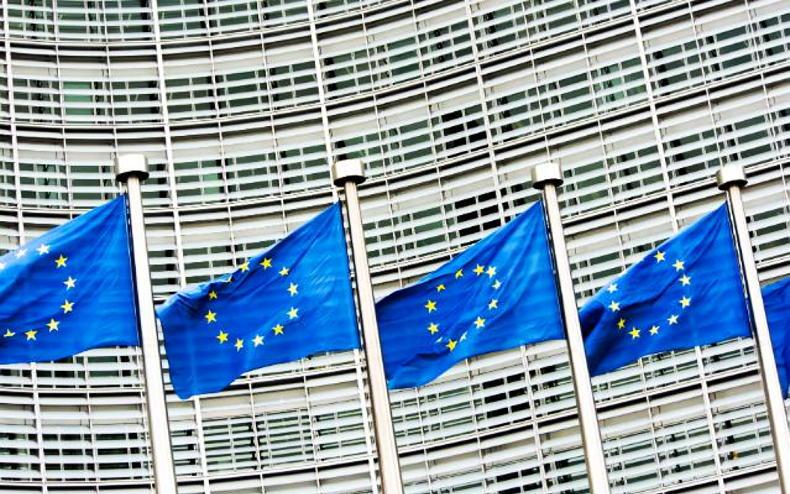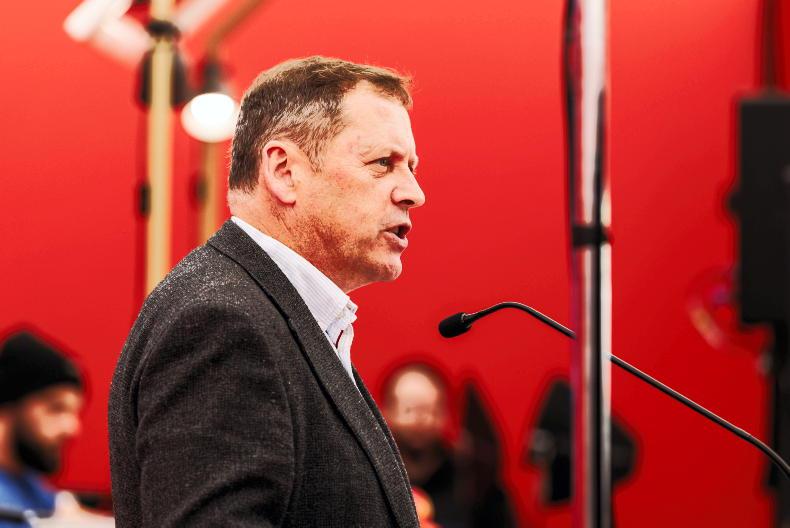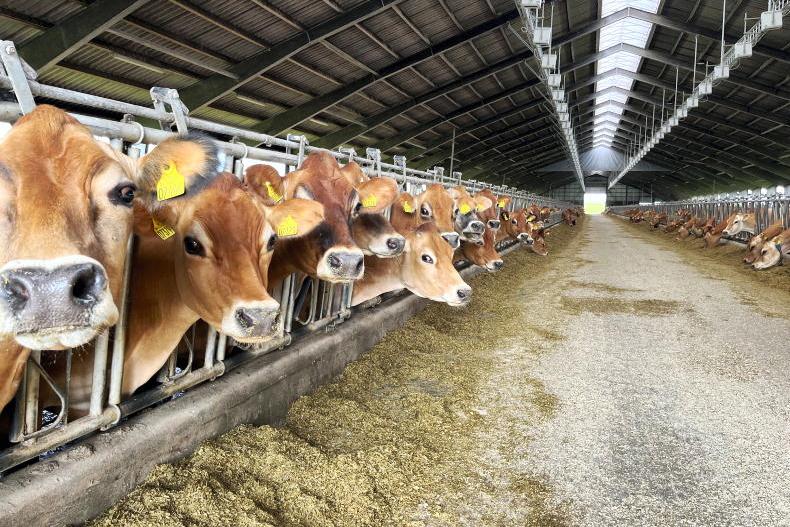Elected to the European Parliament last summer, Fianna Fáil MEP and full member of the parliament’s agriculture committee Barry Cowen sees no shortage of challenges for Irish farming interests in Brussels.
An EU budget facing COVID-19 debt repayments, increased defence spending and pushback from member states that are net contributors to the budget leaves an uncertain future for CAP funding.
The European Commission’s new vision for agriculture and food was “hamstrung” by these budgetary constraints, especially given the need to secure a third CAP pillar solely focused on the environment, Cowen told the Irish Farmers Journal.
The MEP was somewhat evasive on outlining his position on the European Commission’s indications that the next CAP’s funds should be directed to the farmers “most in need”.
“Convergence if allied with the right incentives and the right enhancements and the right reward system is fine by me for equalising payments from a per hectare situation,” he said.
“But then analysing the contribution that those respective holdings can make towards the future – is it in the area of small farms especially in the area of biodiversity?”
When pushed on the potential losers from the post-2027 shake-up of direct payments, he again suggested that the farms that innovate, improve environmental performance and put generational renewal plans in place should be rewarded for doing so.
Plans to ease red tape may cut the volumes of paperwork farmers must wade through to claim scheme payments and prove compliance with regulations, said Cowen, but the regulations themselves are not on the chopping block.
Simplification may “free up farmers’ time to do what they do best, which is produce quality food”.
“You have the conditionality that is attached to CAP presently. There shouldn’t be further demands unless there are new opportunities that can be exploited as a result of that, through enhanced payments, through reward-based rather than the cost foregone metric that we’ve had previously.”
Farming on peat soils
The Offaly man hit out at what he characterised as “alarmism” from some quarters in the ongoing debates around implementing the EU Nature Restoration Law, rewetting peat soils and new GAEC 2 rules for farmers on peat soils.
He acknowledged that previous emissions estimates for agriculture on peatlands, which were subsequently accepted as having been overstated, “fed into the fear and alarmism” on rewetting.
“The first thing I’d say is that there was a lot of alarmism around this previously by political opponents who took advantage of the fears and concerns that many may quite rightfully have had.
“I just think some political opponents took advantage of that and that isn’t very fair, I think, to those who gave them the privilege of representing them.”
He reiterated the Government line of EU Nature Restoration Law measures being voluntary for farmers and that the law’s rewetting targets can be met on State lands.
“Now that’s not to say that the State can, of course, offer an initiative, a scheme, a proposal, to any landowner who wishes to avail of it and be rewarded for doing so but not rewarded to the tune that he’s making more money out of rewetting it than he would out of a Limousin herd, for example.”
Cowen suggested that he does not foresee new GAEC 2 rules imposed on new drainage works, land reclamation, deep ploughing and reseeding for farmers on peaty farmland as being a major restriction to farming in the affected areas, such as his base in the midlands.
“That’s [GAEC 2] purely and merely for new farm proposals, new reclamation of land which won’t and can’t take place, to be quite honest,” he said.
“So, I’m not as fearful of that as some would have you believe I should be, but that’s not to say I won’t be watching it closely. Of course I will.
“I am committed, I was steadfast in my summation and my declarations and statements that the State could meet the demands that were being placed upon it in relation to rewetting proposals.
“I stand over that, I stand by it, and I remain as committed to it in relation to GAEC 2 too, as well.”
Cowen stated that his position on an EU-Mercosur free trade agreement is that the current iteration of the deal must be opposed on principle.
This is notwithstanding the €1.8bn in trade currently conducted between Ireland and Mercosur countries and with benefits anticipated for the Irish economy as a whole, as well as some agri-food commodities like cheese and other dairy products on the agreement of a deal, he said.
“We’re saying it’s not always about the money, you know, it’s about principle in this instance.
“And the principle is that we have pursued sustainable development at a cost to farmers who had to change practices, change their way of doing business in order to meet that demand and we can’t allow that be compromised.
“Look, we’re not alone, but you couldn’t be definitive about the support that might come. You know, France would be in our corner, Belgium may well be, Poland may well be. Italy was thought to be, but I’m not sure that they are and there is a split there.
“It’s evolving and there’s a bit of time to go and there’s a lot of scores to be had yet in the match.”
Nitrates politics
Cowen made clear his view that a decision on the nitrates derogation is a political decision.
“If it were down to science, we wouldn’t be getting an extension. If it was to be based on science alone and the parameters under which the Water Framework Directive was designed and expected for countries to respond to, we’d fail. That’s the crude fact. We’ve envisaged that fact and we have refocused over the last number of years in addressing that eventuality and we are heading [in] the right direction.”
He cited an Environmental Protection Agency report released last year, which shows that nitrate levels in waterways were at their lowest levels since 2016 over the first half of 2024, as evidence of the concerted efforts to improve water quality.
“The stakeholders, thankfully, have come together. You’ve seen it with co-ops. you’ve seen it with the organised farm organisations. You’ve seen it with processors and producers all coming together to sing off the same hymn sheet, to produce and stand over the facts.”
Final word
Cowen concluded by outlining his top three priorities for the looming CAP negotiations: the budget, a new environment fund and succession.
“Obviously, the best possible funding that is available, despite the pressures that are on that funding. Secondly, to ensure there is a new environmental pillar that rewards farmers who embrace and enhance the potential.
“The third thing then is that there is a specific commitment to generational renewal. I know it is a single-country competency, but we might be in a position to link all that together to entice the brilliant youth we have to see a future and some certainty in the sector that they can make a living from and educate their children from thereafter.”










SHARING OPTIONS